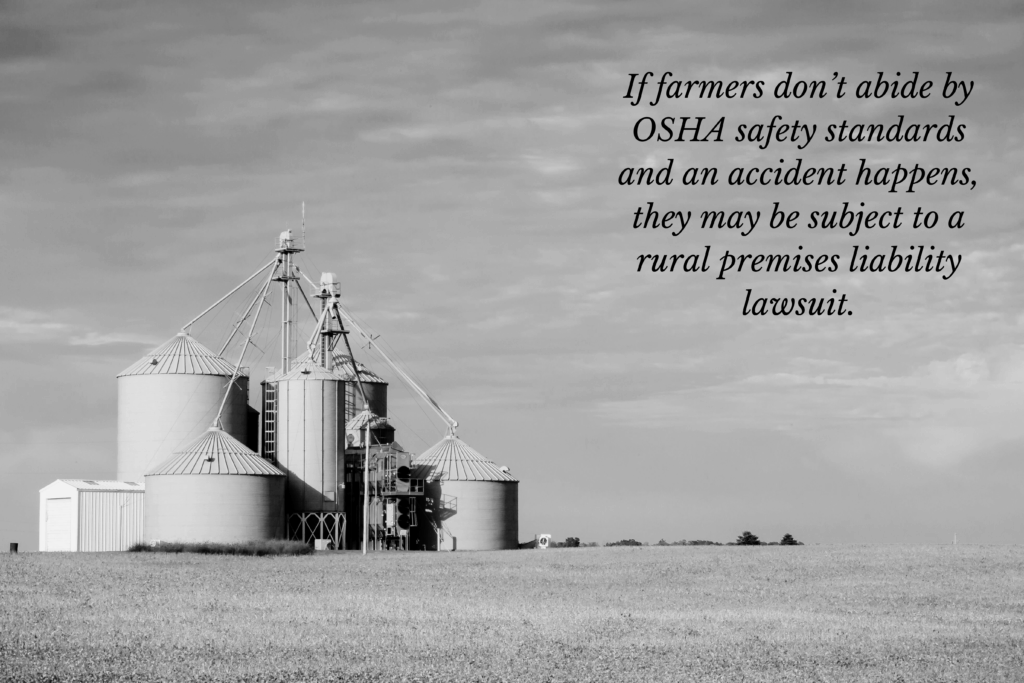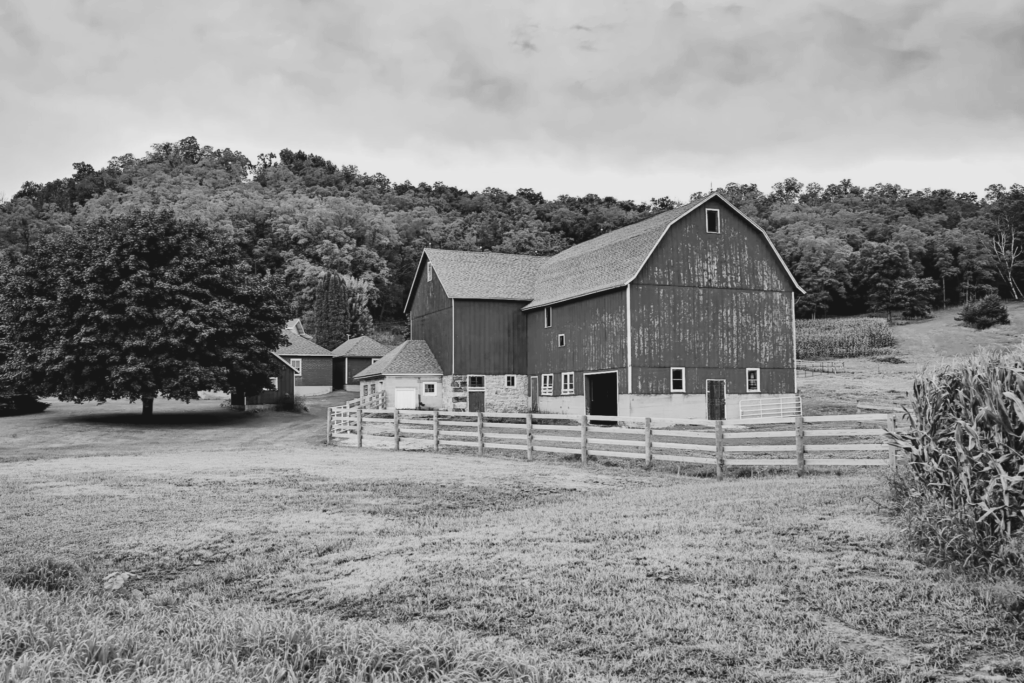To those driving through rural Illinois, silos, grain bins, and barns seem to simply be part of the natural landscape — and their dangers are often overlooked. Farm workers as well as visitors to the premises (including children) are susceptible to catastrophic injuries when climbing ladders or loading goods into these structures. Owners of agricultural businesses are legally obligated to take measures that prevent falls on farm grounds. And when a fall happens, they are subject to a rural premises liability lawsuit if those measures were not taken.
If you, or a family member, have been injured on a farm, here’s what you need to know about filing an accident claim.
How Agricultural Buildings Pose Fall Hazards
From 2021-2022, almost one-third (29%) of farm injuries that required days away from work were from falls. The risk of a silo, grain bin, or barn fall injury in Illinois is tremendous due to the following risks:
Old buildings. In an old barn, rotted boards can break, sending farm workers plummeting from hay lofts to the concrete floor beneath. Some older barns also have hay holes for dropping hay down to animal stalls below. Children can easily fall through these holes while playing.
Tall ladders. Ladders on grain bins and silos can exceed 30 feet. A fall to the ground or onto other machinery can result in back injuries, broken bones, or death.
Slippery surfaces. Mud, grease, or loose grain left on grain bin platforms or ladders can create slipping hazards that lead to falls.
Missing safety rails. When rails are loose or missing, or don’t meet the height requirements set by OSHA, workers can easily fall multiple stories to the ground.
Children are Especially Susceptible to Barn Height Falls
The Midwest region is estimated to have a higher proportion of youth on farms than any other region and, as a result, has the highest number of pediatric farm-related injuries in the United States. In a study published in the Kansas Journal of Medicine, animal-related incidents were the number one cause for Midwest farm injuries in kids, while falls and farm vehicle accidents were tied for second. Whether it’s a teenage employee falling from a grain bin ladder or a young visitor falling from a barn loft while playing, kids in these accidents can endure injuries that impact the rest of their lives.
Injuries Sustained in Falls from Farm Structures
Whether it’s from 10 feet or 100, taking a tumble off of a farm building can lead to:
Fractures. Even when falling off a short ladder, broken bones such as wrists, elbows, and legs are possible.
Neck and spine injuries. Serious falls, such as those through fragile barn roofs, can lead to severe fractures of the spine and neck, causing nerve damage or paralysis.
Brain injuries. When fall victims hit their head, they are likely to experience a concussion or loss of consciousness. In severe falls, traumatic brain injuries can lead to lifelong developmental delays.
Suffocation. Without a proper emergency plan in place, falling into a grain bin can result in entrapment and suffocation within seconds.
How is Liability Proven in Illinois Barn Fall Injuries?

If farmers don’t abide by OSHA safety standards and an accident happens, they may be subject to a rural premises liability lawsuit. To prevent falls, they must implement practices such as:
- Providing workers with a full body harness attached to an anchor point outside a grain bin.
- Requiring workers to wear slip-resistant shoes or boots.
- Performing regular maintenance on ladders, rails, and platforms.
- Properly training workers on hazards and safety measures in place.
- Placing entrapment warning decals on grain bins and grain transport vehicles.
- Using a lockout and tag out (LOTO) system and installing emergency shut-offs in grain bins.
In some cases, however, a fall accident may not have been the farmer’s fault. For instance, if a piece of equipment malfunctioned even though the farmer had kept up with regular maintenance, the equipment manufacturer could be to blame. There might also be a managing company responsible for farm safety that allowed rails to become loose or didn’t replace a rickety ladder. A knowledgeable farm attorney is skilled at investigating fall accidents to determine who was responsible.
Receiving Compensation: Filing an Illinois Agricultural Accident Claim
By Illinois law, agricultural employers who have more than 400 working days of labor in any quarter must carry workers’ compensation insurance, so farm-fall victims are entitled to those benefits. In cases where that 400-day threshold is not met, or the fall was not work-related, there may be grounds to file a rural premise liability claim instead.
After a fall, the first thing to do is seek medical attention. Next, you’ll need to do the following to start the claim process:
Document the scene. If possible, take photos of any loose or missing rails, slippery surfaces, or other things that caused the fall.
Contact an attorney. As experienced farm accident attorneys, Kane Personal Injury will begin to gather evidence to support your claim.
Document medical records. Make sure to keep all medical bills along with documentation of any related expenses, such as ambulance rides, doctor’s visits, and physical therapy appointments.
Keep track of lost wages. Any hours that you cannot work due to the injury will become part of your owed compensation.
Proving fault for agricultural injuries is complex and requires extensive knowledge of Illinois farm regulations. Our attorneys will investigate your case to determine who owes you compensation, so you can focus on beginning to heal. There’s no fee to discuss your case, so contact us as soon as possible.
